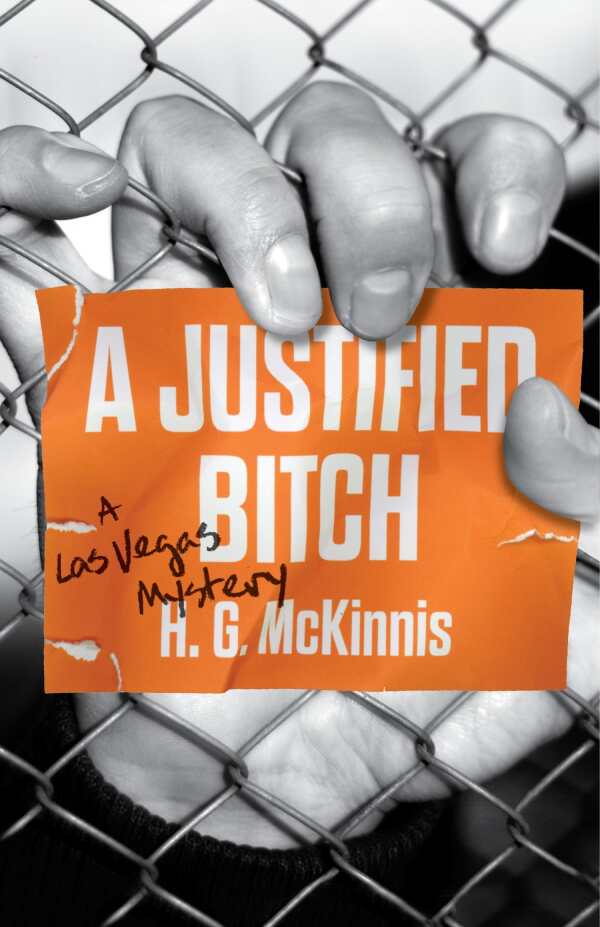A Justified Bitch
A Las Vegas Mystery
The true story here is one of a sister helping a sister, a mother-and-child-reunion, and a woman on the road to recovery.
H. G. McKinnis’s A Justified Bitch may be labeled a murder mystery, but its real story is of family ties and mental health. Can a “crazy” old hoarder suspected of murder come back from a seemingly ruined life?
The title character is Helen Taylor, a middle-aged widow whose behavior has long surpassed eccentric. Helen appears just prior to a severed finger in the story, and arrives happily chatting with the ghost of her husband. She hasn’t washed in months, and she is living in a vermin-conquered house in a bad neighborhood.
The novel captures Helen’s condition, and her dead-husband repartee, with a lightness that belies the real-life notion of a woman so far gone that police reel away from her body odor. This sets an early tone for a murder mystery full of chuckles and lovable characters, though the novel grows more serious as it progresses.
Tone shifts are often disorienting. Is the novel meant to ridicule its lead, a woman living in abject squalor, neglected by the system, and forgotten by her family? Helen’s struggles in an odd mental institution and her navigation of swap-meet profit margins are all interesting, though, and are for the most part funny, despite a few cringeworthy stereotypes.
The whodunit prompted by the finger proves to be a device. When Helen is arrested and her troubles are exposed, her long-estranged sister, Pat, returns to help her get treatment. Pat brings two teenage boys, one of whom is Helen’s son from a time when she was saner. Thus begins the true story: a sister helping a sister, a mother-and-child-reunion, a woman on the road to recovery. Beside these interactions, the mystery flakes away; the real interest lies in those still alive.
Lovable Helen’s real enemies prove to be the same enemies that all of us face when our minds can’t keep up with life’s depredations: loneliness, depression, and the feeling of being lost in the shuffle.
Reviewed by
Leia Menlove
Disclosure: This article is not an endorsement, but a review. The publisher of this book provided free copies of the book to have their book reviewed by a professional reviewer. No fee was paid by the publisher for this review. Foreword Reviews only recommends books that we love. Foreword Magazine, Inc. is disclosing this in accordance with the Federal Trade Commission’s 16 CFR, Part 255.

